Episodes
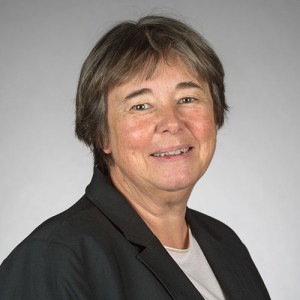
Thursday Feb 28, 2019
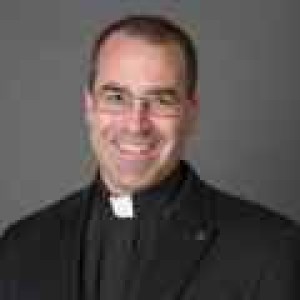
Monday Feb 25, 2019
Monday Feb 25, 2019
0:00 - Science is materialist by method, but scientists need not and should not be materialist by philosophy
2:00 - The world must be real and intelligible for science to make sense
3:00 - And faith provides a philosophical basis that allows this to happen
3:30 - Students' testimony on faith and science
4:30 - Removing the faith/science obstacle is only one step on the road toward faith
5:00 - God vs. Godzilla
6:00 - The true God and His use of secondary causes
11:00 - Creation as carmen Dei (song of God; Bonaventure)
12:00 - vs. strepitus naturae
15:00 - Thought and spirit vs. matter
[This harks back to, e.g., the Ed Feser talk at the SCS conference. I personally think there is an enormous gap--bridgeable, but still to be bridged--between these arguments that the ability of the mind to generate and handle abstract concepts implies a non-material component to thought on the one hand, and the work of modern neuroscience to track the activity of neurons around the brain in specific patterns as we think.]
17:00 - Philosophical gaps in the picture of existence without God
18:00 - Infinite regress of causes, temporal/efficient causes and extra-temporal
19:00 - Postmoderns in general have a depressing view: a para-Christian morality without God; doctrinaire atheists live in an even more depressing paradigm of complete lack of meaning
21:00 - Basil & Pope Francis on creation
22:00 - Basil on the interpretation of the six days and other aspects of creation
23:00 - Guides on the tour of creation
25:00 - Symbolic language (numbers) in Scripture
27:00 - Scriptural mandate to tend creation
29:00 - Historic ginning up of the conflict between science and faith

Monday Feb 18, 2019
Monday Feb 18, 2019
0:00 - Introduction
1:00 - Catholic roots
2:00 - Early sense of vocation
4:00 - Lure of biology and ecology, early experiences in the field
9:00 - Swing to doing theology with reference to ecology rather than ecology with reference to theology
11:00 - Intellectual honesty in philosophy, science, theology
13:30 - Science, Creation, Theology course
15:00 - A theology course with a lab component
19:00 - (Fr. Terry loves basswood trees. They were a go-to example of a specific created type of being.)
20:00 - How does this dragonfly relate to Christ?
22:00 - Despair that can color one's attitude toward bridging faith and science
23:00 - (The basswood tree that can be counted on to grow the same shape of leaves every year.)
24:00 - Treating things according to their nature, the "grammar" of natures
25:00 - Grammar of connection and hope... and human flourishing (Center for Science, Faith, and Human Flourishing)
28:00 - Scientism and reduction of life to technocracy, rather than being a whole human being engaged in science
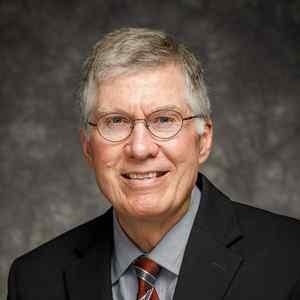
Monday Feb 11, 2019
Episode 046 - Daniel Hinshaw and the frontier between medicine and faith
Monday Feb 11, 2019
Monday Feb 11, 2019
I started off this part of the interview by asking Daniel about his own journey through life and faith. His early love was history, despite having a father who was also a doctor and an academic. His interests only turned to medicine after a time in Peru and exposure to brutal poverty, and then like many of us, he drifted into an academic career. Later in life he has been able to return to that original motivation.
Daniel and his wife were brought up in the Seventh Day Adventist faith, and still greatly respects the grounding in charitable work and the Bible he received then. Eventually he and his wife got the Newman bug and had to go deep into history and join one of the apostolic churches; they joined an Eastern Orthodox church.
In that context, Daniel laments the drift of the modern hospice movement away from Christian spiritual roots and into a secular, palliative mindset, and the broader question of what is missing from the often uttered or thought statement, "if it's legal, it must be moral."
"We confuse technological prowess with being deeper and more thoughtful."
An interesting consequence of our medical progress is that we now face a future where, for the first time, across the world, most people will die of conditions derived from aging rather than contagious diseases, accidents, childbirth, etc.
We discuss a bit the golden mean to be found, steering clear of euthanasia on the one hand, and of resorting to excessive means to stay alive in the face of a fatal illness.

Monday Feb 04, 2019
Episode 045 - Daniel Hinshaw and the human microcosmos
Monday Feb 04, 2019
Monday Feb 04, 2019
Today we start a two-part series with Daniel Hinshaw, a professor emeritus of surgery at the University of Michigan, who has come to focus on palliative care for the dying. He sees his work as having deep roots in the Christian tradition, and has written on the subject of "kenosis" (the Scriptural concept of "emptying" or "reduction" or "wasting away" that is key to our understanding of the Incarnation and the Passion of Jesus Christ) as a useful concept for understanding our own mortality, at the scale of our individual cells as well as our whole composite being.
He shared some interesting spiritual perspectives with us. As someone who in his mature years moved from the Seventh Day Adventists and sought out the apostolic churches, he now belong to the Orthodox Church. We spent some time discussing the "microcosmos," John Chrysostom's idea that the human being contains all creation in miniature, and how that is oddly true in certain respects: we are each communities of organisms. Our gut microbiome, for example.
Daniel went on to talk some heavy duty biochemical shop. We discussed the oxidizing agents (e.g., hydrogen peroxide) involved in inflammatory ailments. He touched on the fact that some of the worst chemical warfare agents, like sulfur mustard gas, operate in a similar oxidizing mechanism, triggering apoptosis, and discussed some of his work on finding remedies for these agents, as well as how similar they are to the earliest generation of chemotherapy agents.
We shifted back to the question of faith, and discussed how both Daniel and his wife confronted suffering in their work (his wife as a psychiatrist treating AIDS patients in particular) and this was a core part of their journey. Daniel pointed out the provocative fact that we really seem to be programmed to age and die, and that the only exceptions to this... are cancer cells.
Another moral point we discover in modern biology has to do with epigenetics. As human beings, we can abuse our bodies to the point that we leave effects on our germ cells that can carry on the "sins of the father" to future generations.
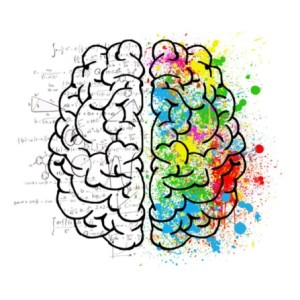
Monday Jan 28, 2019
Episode 044 - The Brain and The Pain of Being Human
Monday Jan 28, 2019
Monday Jan 28, 2019
In this episode, we expand on our introduction to the brain by discussing some theories - ranging from well-documented to rather speculative - about the specific structures of the brain that are active (or less active) in situations ranging from autism to depression, stress, and trauma.
At the end we spend a few minutes on a preliminary critique of the materialist reductionary attitude ("interpretation" is too grandiose a word for it) toward brain science by many of its practitioners and reporters. Free will, for example, is not an illusion just because the physical part of the brain where it happens can be injured and we can be deprived of it... but much more on such neurophilosophical issues as the year progresses.

Monday Jan 21, 2019
Episode 043 - Introduction to the Brain
Monday Jan 21, 2019
Monday Jan 21, 2019
In this episode, we lay out the basic groundwork for future discussions of the human brain.
The brain we humans have apparently evolved in three stages. This can't help but be a tremendous simplification, but it's a commonly encountered statement and seems to have considerable explanatory power.
The lowest part of the brain, the brain stem (the medulla, etc.) and the cerebellum, control unconscious processes, most of which we cannot take into conscious control even if we want to. Often this is called the "lizard" or "reptile brain."
A series of little suborgans, the thalamus, hypothalamus, amygdalae (a - myg ' - da - la, the good Latin pronunciation, for the singular apparently; and my Webster's unabridged also informs me that it just means "almond shaped thing"), putamen (that habit-storing part I could not remember during the episode), and a few other parts form the limbic system, that communicates between the senses and the body, and that serves critical functions for things like emotion and memory that we share with mammals.
The upper part of the brain, the big part in human brains, is the cerebrum. Its regions are referred to as cortex / cortices or lobes. We have large volumes of the brain dedicated to visual and auditory processing, motor skills, and the whole front of the brain is where the neural work of our most human capabilities occurs: judgment, reasoning, wondering, creativity, consciousness.
The following two books informed the discussion today:
The Body Keeps the Score by Bessel van der Kolk
Mapping the Mind by Rita Carter
I cannot recommend The Body Keeps the Score highly enough. It starts out as a discussion of PTSD, but it grows organically into a discussion of problems that all children, and therefore all of us, are liable to have, and ways that are being discovered to bring both brain and body to peace.
On the other hand, Mapping the Mind is only intermittently good. The first hundred pages I found rough sledding, with little sense the author understood the facts being hauled out and stacked up. It got better. The last few chapters betray the common, poorly thought through materialist reductionism common in the field, no surprise, but the content of the final 200+ pages is mostly good. Autism, depression, and addiction come up, although the stock in trade is discussion people with bizarre, tragic, but fascinatingly specific brain damage and what those episodes suggest about how all the different mental aspects of being human are spread about the brain.
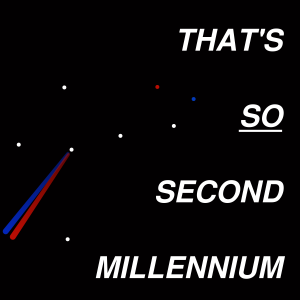
Monday Jan 14, 2019
Episode 042 - TSSM in 2019, part 2
Monday Jan 14, 2019
Monday Jan 14, 2019
What sense can we make of the ancient and medieval idea that "the soul is the form of the body" in the light of contemporary neuroscience and psychology?
Highlight this idea's differences from Platonic and Cartesian dualism.
History of psychology as a discipline. Psychology has not evolved (a) master paradigm(s) that compel the bulk of the field to adhere to them the way that plate tectonics did for geology, Newtonian classical physics and then quantum and relativity did for physics, etc.
Peace of Soul (Fulton Sheen) remark that psychology has been furtively recycling Christian ideas and passing them off as new for a long time
Examining the convergence points of the advice for living from the Bible and Tradition, modern psychology, and the contemporary self-help / New Age-y movement that continues to spread and adapt through large sectors of modern culture.
Self-esteem, humility...
Confidence, faith, negative tapes...
Twelve Step spirituality (Richard Rohr and the intense overlap between 12 Step and Catholic spirituality)
Even many of us who are explicitly Christian have internalized a kind of Lutheran / Jansenist belief that we are so terrible that, in essence, God made a mistake in going to all this effort to save us, because we're not worth it. This is one of a number of areas in contemporary Catholic and Christian culture where we have let our understanding of Scripture and Tradition get very warped and imbalanced.
Issues surrounding how the Christian and scientific understanding of universal history could fit together.
What will "the end of the world" look like? Will it be the end of the whole universe or not? Will there be human colonies on other planets, orbiting other stars? How would the Apocalypse play out then?
You can find That's So Second Millennium at all of these places:
tssm.podbean.com
paggeology.net/blog
@infamousDrG on Twitter
That's So Second Millennium page on Facebook
giesting -at- alumni.nd.edu is Paul's email address
Please be in touch with your feedback, ideas for new episodes, and conversation of any kind!

Monday Jan 07, 2019
Episode 041 - TSSM in 2019
Monday Jan 07, 2019
Monday Jan 07, 2019
Themes we'd like to grapple with in the Year of Our Lord, 2019, and beyond:
Last year was largely about the intellectual challenge leveled by many against religion, and we will continue talking about that as the podcast moves forward.
Paul's mission this year to work through Road to Reality
This year we also want to broaden the scope to include places where religion and faith converge, which means we're going to discuss psychology.
Looking forward to the SCS conference topic for this coming year: what it is, and has been, to be human. Neuroscience and what it implies for anthropology, and where it meets Catholic Christian anthropology coming the other way.
What is consciousness, anyway? What parts of the brain seem to be involved, and what do they do?
What is free will, anyway? Where are those breakpoints where the soul would have to affect the body in order for that to even work?
Crisis points in the way people in the post-Christian West approach the world.
Center for Ethics & Culture annual conference in 2018: Wilfred McClay & John Waters
"we care about everything, but without God... we have responsibility for everything, but we know that we are flawed and unable to provide solutions"
Post-Christian in this context includes both people who have explicitly renounced the Christian faith of the West and those who have a Christian identity in their back pocket somewhere but in reality are not relying on Jesus Christ or his teachings to guide their lives in any conscious way.
Christianity is a demanding religion. If you suck away all the grace and help it promises, but leave some of its demands for social justice or purity of intention, you have a recipe for constant internal condemnation.
Link:
Wilfred McClay (University of Oklahoma) on “Guilt in the Immanent Frame”, and John Waters on “The Importance of Not Being God: A Higher Power Is Indispensable for Human Beings and Human Societies”
No, not THAT John Waters.
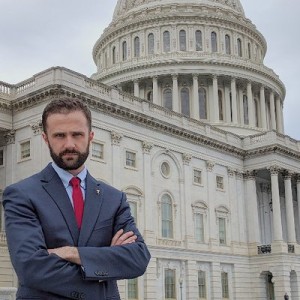
Monday Dec 31, 2018
Episode 040 - Kirby Runyon: Christian planetary scientist
Monday Dec 31, 2018
Monday Dec 31, 2018
I had the chance to have an unofficial interview with Kirby Runyon. (Planetary science is a very publicity-heavy field, and planetary scientists often labor under certain constraints regarding their contact with the media. We avoided mentioning his institutional affiliation to emphasize the point that this interview in no way characterizes any official position by his institution. You can find out where he works, and get access to some of his work, via web search if you are curious, and there's a clue around 13:00 as well.)
We opened the interview with a discussion of Kirby's research on surface processes on planets. He works on data returned from the Moon, Mars, and Saturn's moon Titan to evaluate how winds, asteroid impacts, and other forces shape the surfaces of those bodies.
Read the rest of this entry »
